China challenge ‘epoch-defining’, Rishi Sunak warns as Xi Jinping vows PLA ‘wall of steel’
Xi Jinping says People’s Liberation Army will build ‘great wall of steel’ to protect China as Anthony Albanese, Joe Biden and Rishi Sunak unveil AUKUS submarine deal.
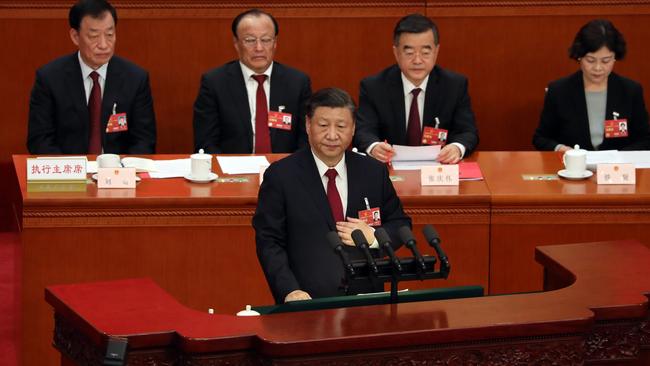
Xi Jinping has declared China will build the People’s Liberation Army into a “great wall of steel” to protect the rising giant’s “national sovereignty” on the eve of Anthony Albanese, Joe Biden and Rishi Sunak unveiling their monumental AUKUS submarine deal.
British Prime Minister, Mr Sunak, warned China posed an “epoch-defining systemic challenge” as he headed to San Diego in the US to meet Mr Albanese and Mr Biden to lay out their AUKUS plans to deter an increasingly assertive Beijing.
In a nationalistic address that underscored the febrile security environment in the region, the Chinese President spoke of his country’s “national humiliation” by Western colonial powers and instructed his officials to prepare for any future contingency, declaring “security … the bedrock of development”.
“We must fully promote the modernisation of national defence and the armed forces, and build the people’s armed forces into a great wall of steel that effectively safeguards national sovereignty, security and development interests,” Mr Xi said on Monday at the closing session of the National People’s Congress, China’s annual rubber-stamp parliament.
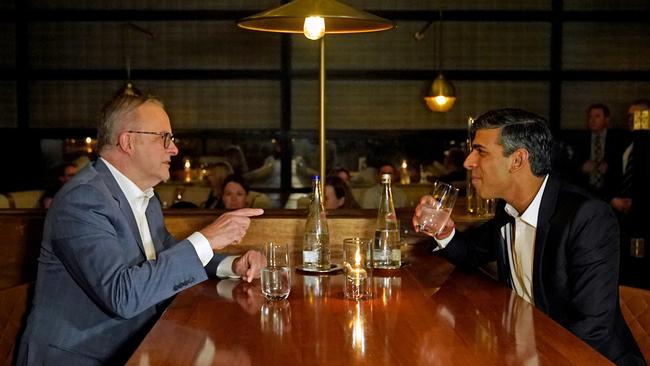
To the cheers of nearly 3000 delegates, Mr Xi called for unification with the self-ruled island of Taiwan, which Beijing views as part of its own territory. “The great rejuvenation of the Chinese nation has entered an irreversible historical process,” he said.
China’s strongman leader spoke as the UK Prime Minister and his Australian counterpart met over supper in San Diego before the announcement of the most substantial upgrade to Australia’s military capability since World War II. Hours earlier, the British PM said China was a country with “fundamentally different values to ours, and I think over the last few years it’s become increasingly authoritarian at home and assertive abroad”.
“Its behaviour suggests it has the intention – but also its actions show it is interested in reshaping the world order and that’s the crux of it,” he said.
In a major security speech, Mr Sunak said the UK needed to be “ready to stand our ground” in a world where “competition between states becomes more intense”. “We will fortify our national defences, from economic security to technology supply chains and intelligence expertise, to ensure we are never again vulnerable to the actions of a hostile power,” the British Prime Minister said.
Mr Albanese on Monday spoke to key regional partners, including Indonesian President Joko Widodo, to allay concerns about the huge military project, which has concerned some in Southeast Asia. He said the nuclear submarine plan, which is expected to involve Australia buying up to five US nuclear-powered submarines as a stopgap measure while a new fleet is built based on a British design, marked a “new dawn” for the nation’s defence policy.
“It’s been well received and understood why we’re doing this. It builds on our long-term relationship,” the Prime Minister said.
The hugely expensive project to acquire “world-leading” nuclear submarine capability – likely to cost hundreds of billions of dollars – is a key plank in the response by America and its allies to the massive build-up of the capabilities of China’s People’s Liberation Army over the past decade. Beijing last week further ramped up military spending by more than 7 per cent to more than $330bn.
There is widespread support for the AUKUS project in Taipei. Lo Chih-Cheng, a member of the ruling Democratic Progressive Party, said Taiwan’s government saw the security pact as part of a crucial effort to change Beijing’s calculus on ever using force in an attempt to bring the self-ruled island under Communist Party rule.
“Your decision to acquire nuclear submarines and to build up strength in your defence capabilities is conducive to redressing the imbalance that is happening now in the region,” said Mr Lo, a government member of Taiwan’s foreign affairs and national security committee.
“We may not be able to stop China’s continuing military expansion, but it is imperative for us to stop the continuation of this kind of military imbalance.”
Taiwan’s main opposition party, the Kuomintang (KMT), also welcomed the submarine acquisition. “We welcome measures to address the future balance of power in the western Pacific. And we would like to see a stronger Western alliance in terms of military capability and technology,” said the KMT’s top international adviser Alexander Huang.
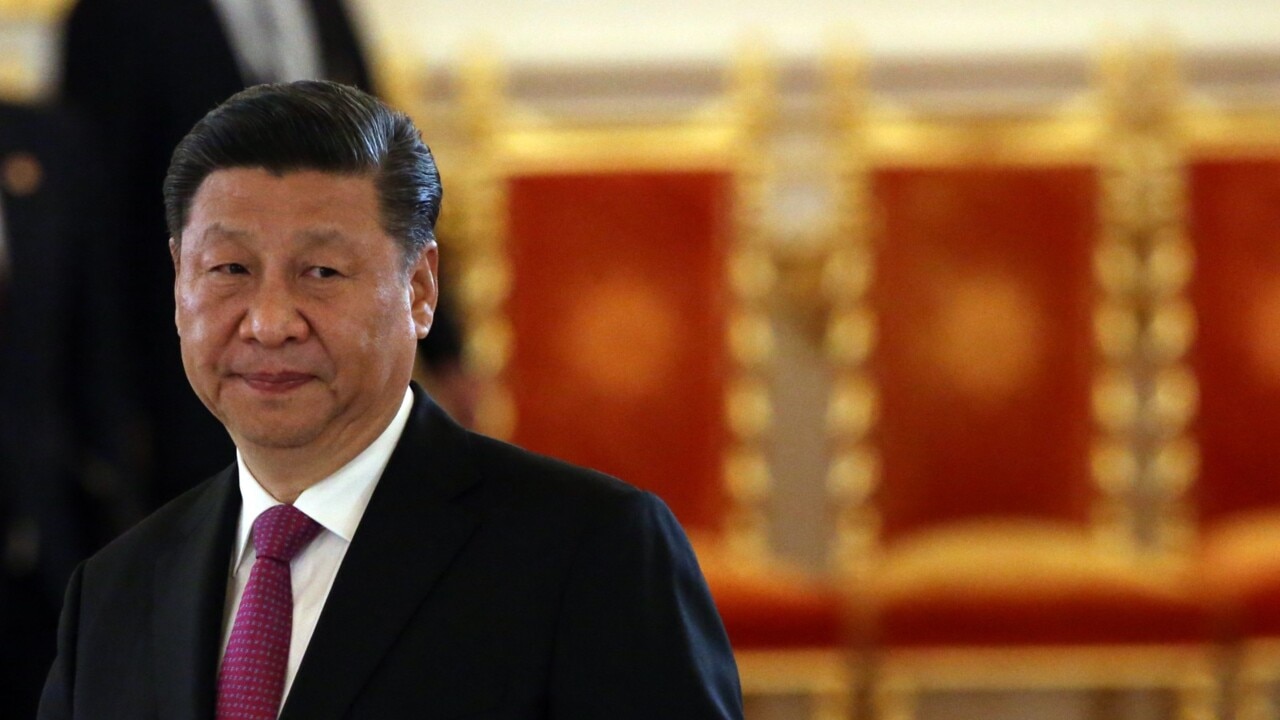
Professor Huang noted that the submarine deal, while helpful in the medium term, would not be in operation for more than 10 years, whereas Beijing was putting extreme pressure on Taiwan now.
China’s propaganda machine over the weekend ramped up attacks on the AUKUS agreement, which it called part of a US-led effort to contain China. The Biden administration’s success in strengthening defence partnerships with Indo-Pacific allies such as Taiwan’s neighbours, the Philippines and Japan, has angered Beijing. In blunt comments last week, Mr Xi told China’s parliament: “Western countries – led by the US – had implemented all-round containment, encirclement and suppression against us, bringing unprecedentedly severe challenges to our country’s development”.
Government-connected advisers in Beijing warned Canberra the deal would lead to a deterioration of relations with China.
Zhou Bo, a retired People’s Liberation Army senior colonel, said the submarine project would put Canberra in a “very difficult situation” as China’s and America’s strategic competition increases.
“I think the Chinese government will continue to push back because this deal is not in China’s interest or even in the interests of the region … I think the Australian government will find itself more and more sandwiched in the future,” Mr Zhou said.
A senior fellow of the Centre for International Security and Strategy at Tsinghua University, Mr Zhou said eight nuclear-powered Australian submarines would complicate Beijing’s military planning.
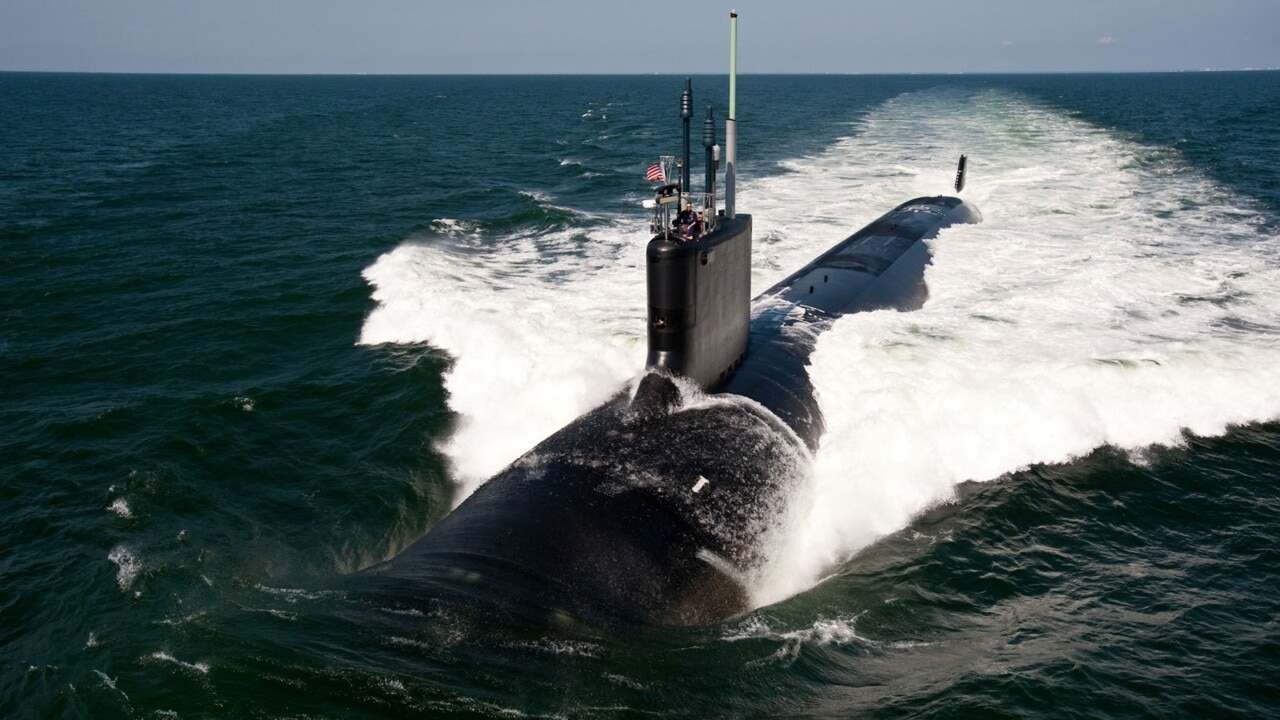
“It will certainly make decision making in Beijing more complicated,” he said. “But I would say China is strong enough or confident enough not to take these as game changers.”
He said Australia had been “sweet talked” by the US into a submarine deal that was against Canberra’s interests.
“The whole purpose of having these three countries in AUKUS is basically to get the Australian government to subsidise the American military,” he said.
China’s diplomatic support of Russia’s invasion of Ukraine and heightened military activity around Taiwan has raised concerns about its intentions towards the island, which the Communist Party considers a rogue province.
There was no change to China’s Taiwan policy announced during the National People’s Congress.
Mr Zhou said there was a widespread misconception about Beijing’s intentions.
“First of all, China has never announced a timetable for reunification with Taiwan,” he said. “Second, it is in our own best interest to have peaceful reunification with Taiwan because what is the use of a Taiwan that is totally shattered?”
But he warned that the international community needed to beware of Beijing’s red lines. “Do not let mainland China believe that there is no more chance for peaceful reunification,” he said.
Mr Lo said Beijing was continuing to try to condition the world to believe that it was “legitimate” for China to expand.


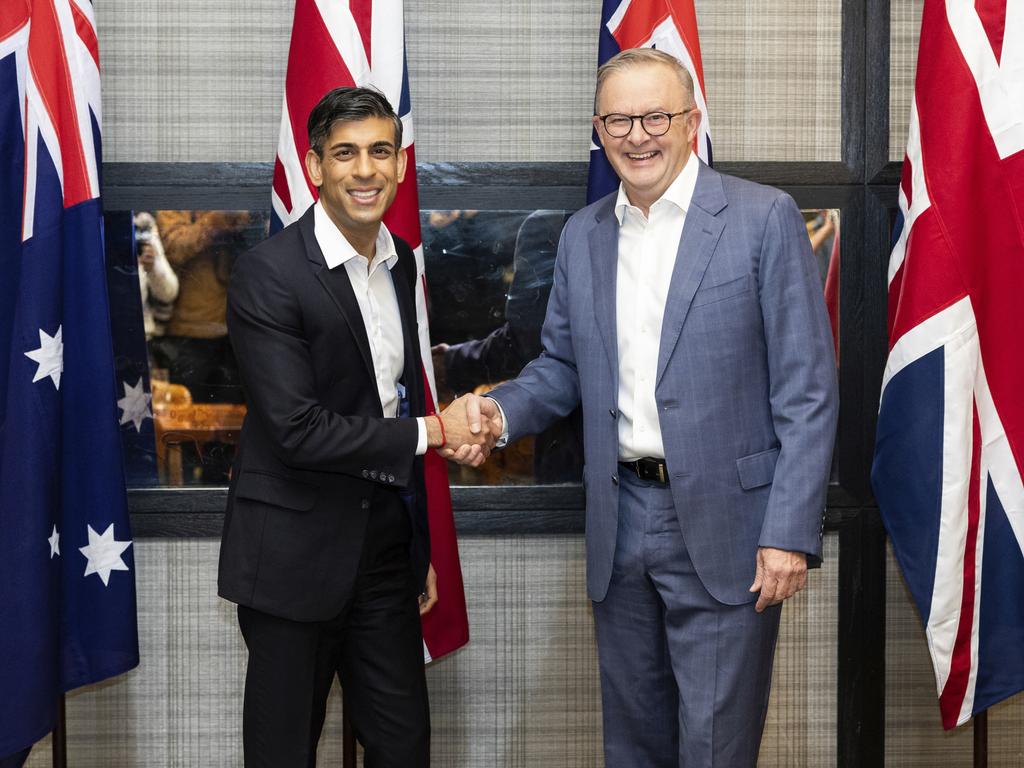
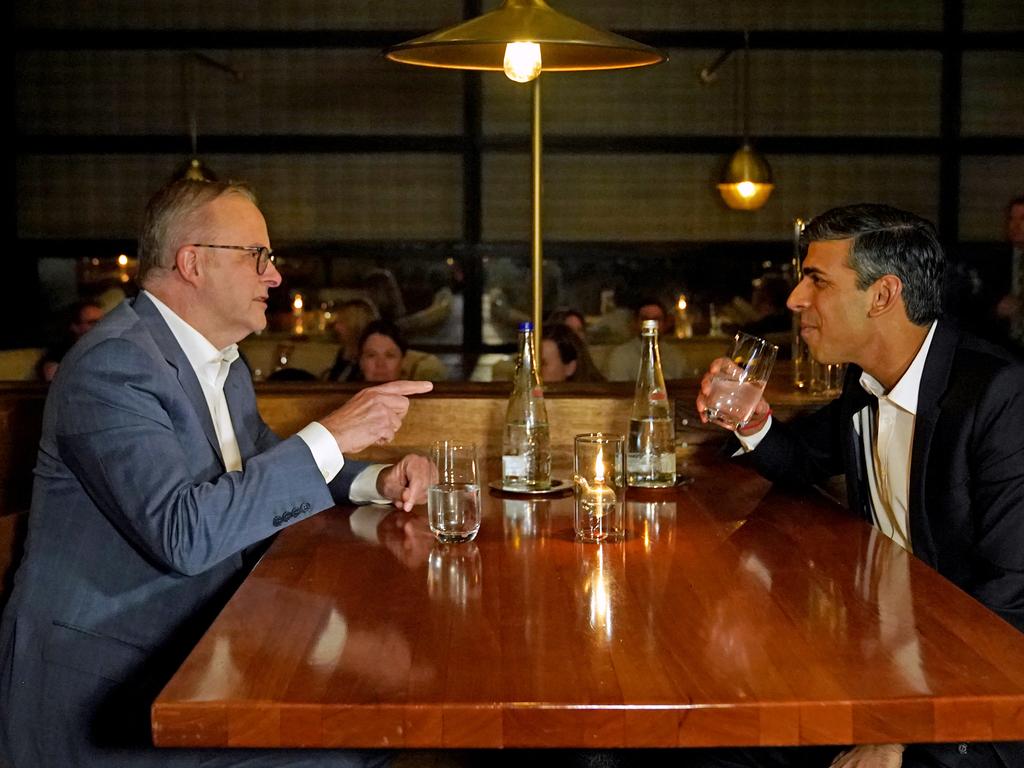




To join the conversation, please log in. Don't have an account? Register
Join the conversation, you are commenting as Logout